Video Connectors are how you connect your gear! They signal 🥁what era and functionality your gear has, and what can be connected to what. Sometimes connectors are closely associated with signals, such that if you see the connector, you know what signal it carries. Other connectors may be used by a variety of signals. Some connectors are electrically compatible, and can be plugged into each other with a simple adapter. Other connectors and signals may require converters.
List of video connectors - Wikipedia
Audio / Video hardware connectors pinouts diagrams @ pinoutguide.com
https://amiaopensource.github.io/cable-bible/
Cable / Coaxial / RG-6 / RF / F-Type
- What people think of as “Cable”.
- Consists of a center solid copper wire, surrounded by plastic insulation (dialectric) and foil; and then a braided outer shielding.
- RG-6 is the thick cable for residential TV.
- RG-59 is a thinner cable used for security cameras and other applications.
- The name of the connector is F-Type.
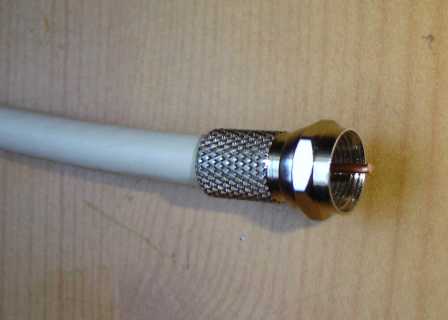
RCA - mainly for composite/component video and audio signals. 75 Ohm impedance.
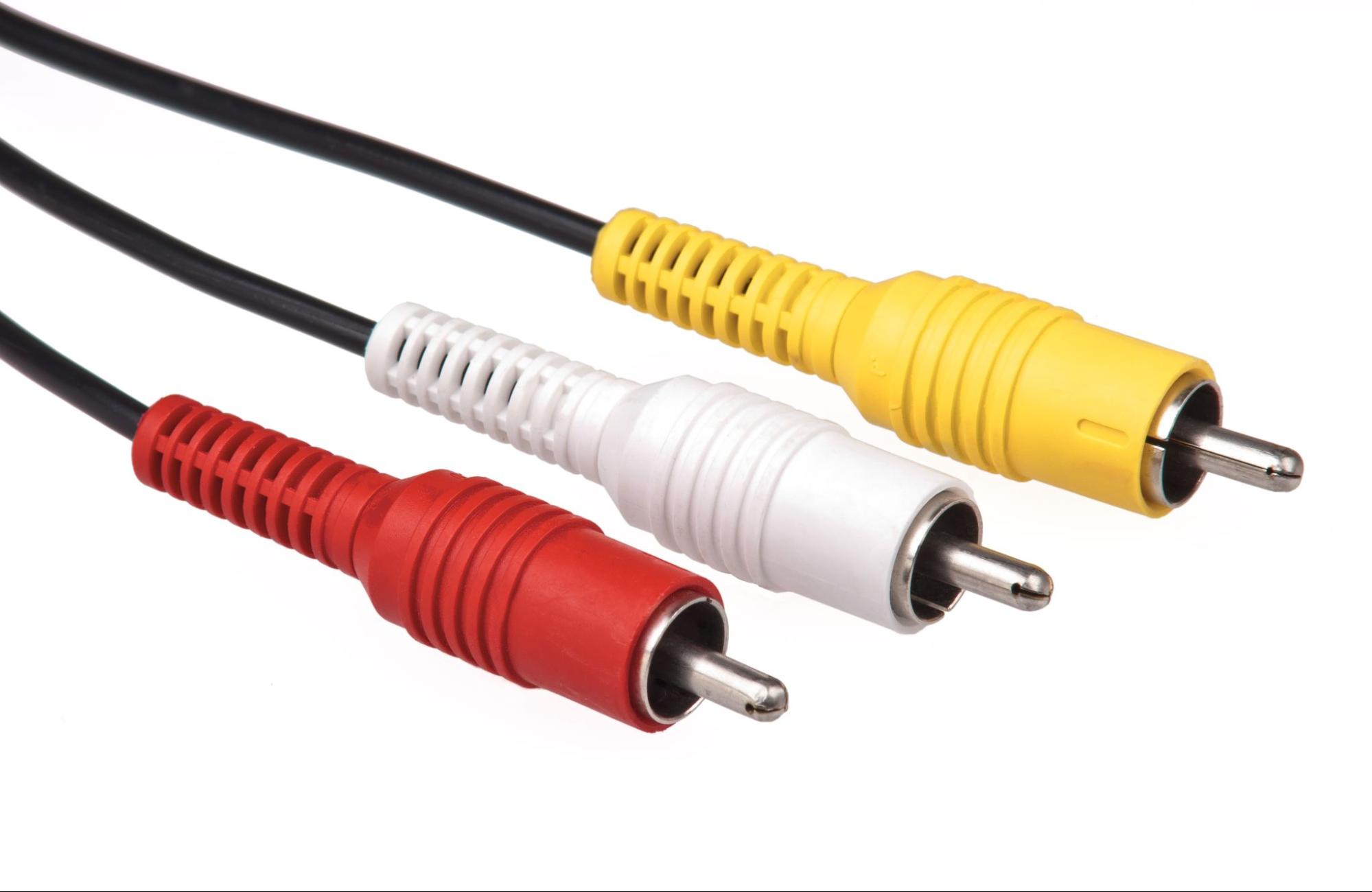
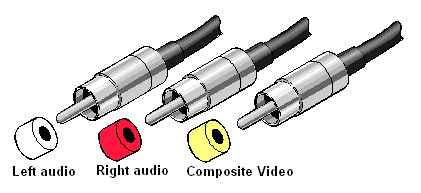
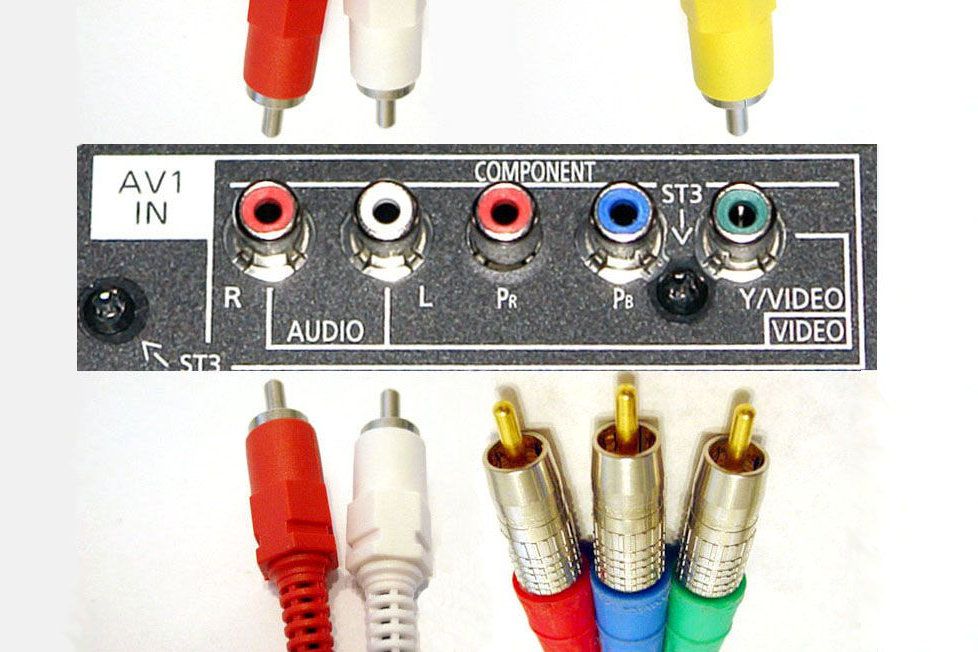

S-Video - a 4-pin mini-DIN connector.
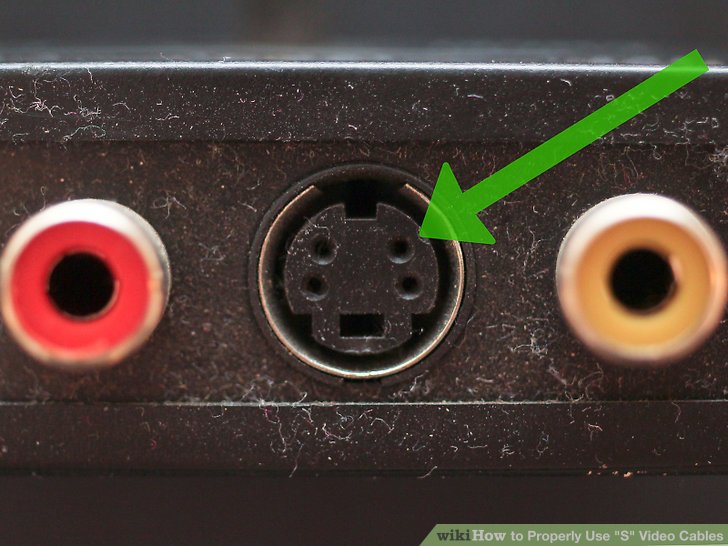
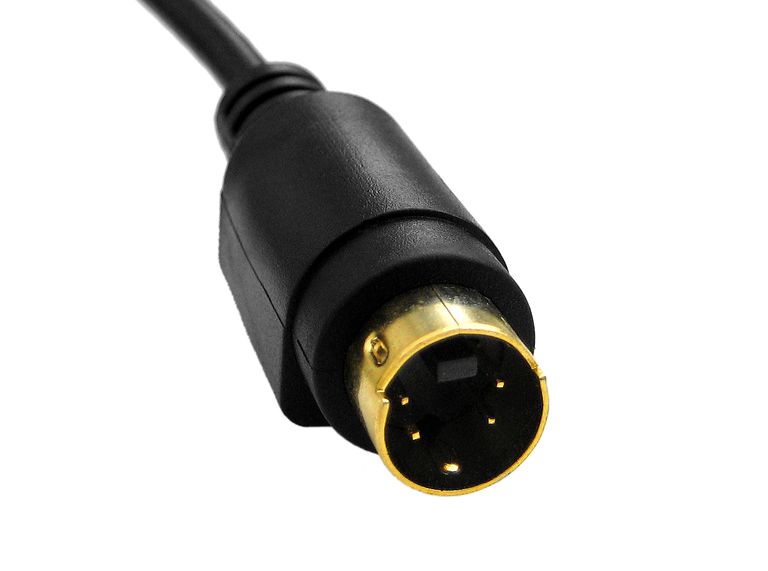
VGA Connector (15 Pin D-Sub)- Typically used for VGA. But may also carry Analog RGB (RGBHV). Often just called the VGA Connector. Note a 9 pin D-Sub connector looks similar but is incompatible.
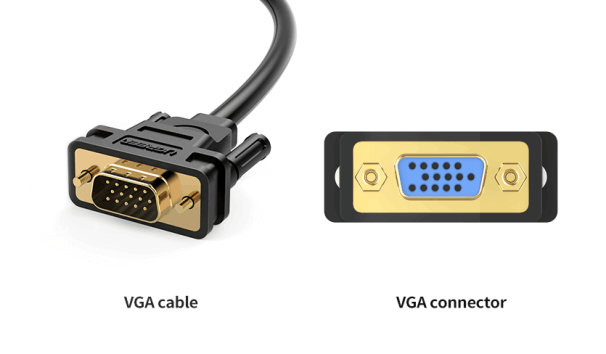
BNC - a coaxial cable connector found on many older video devices and CCTV devices; most commonly used for Composite and Radio Frequency (RF) signals, but also for component and SDI. These come in 50 and 75 ohm varieties, with video using the 75 ohm variety. You may encounter 50ohm BNC connectors in Radio or Test and Measurement equipment.

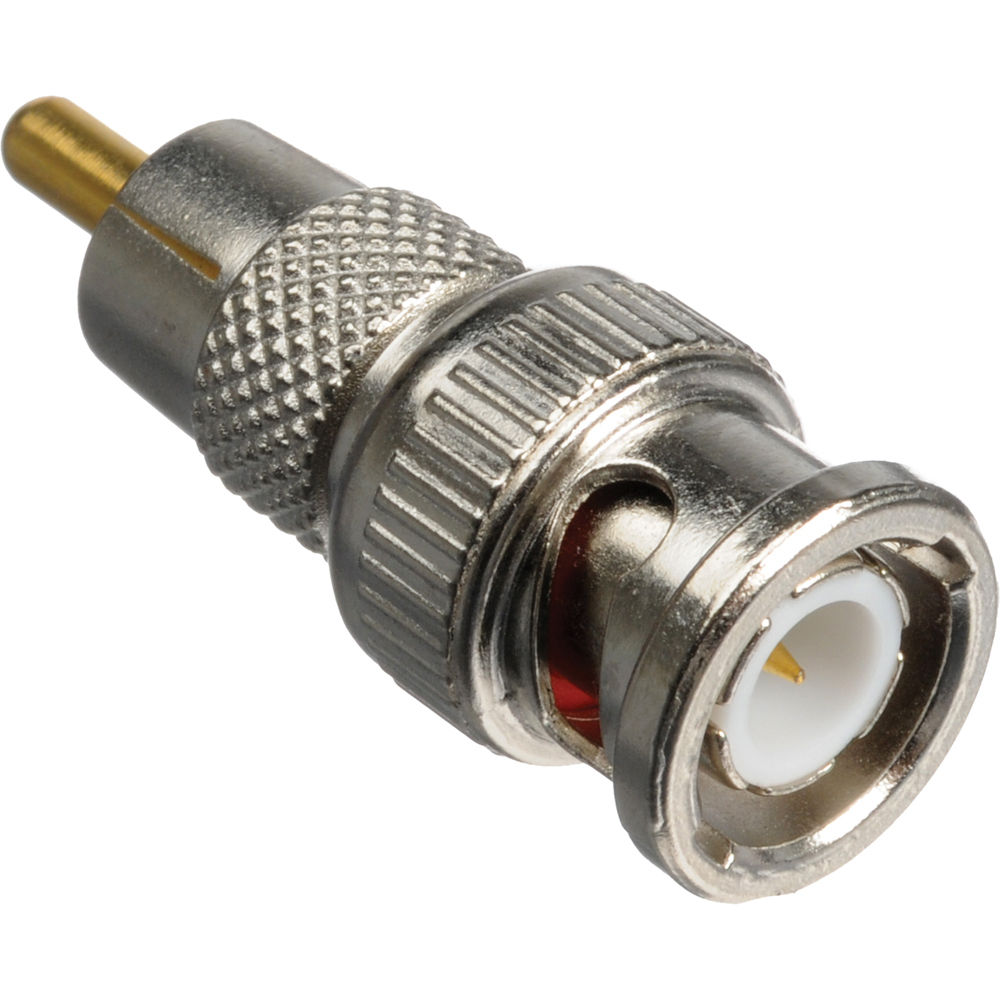
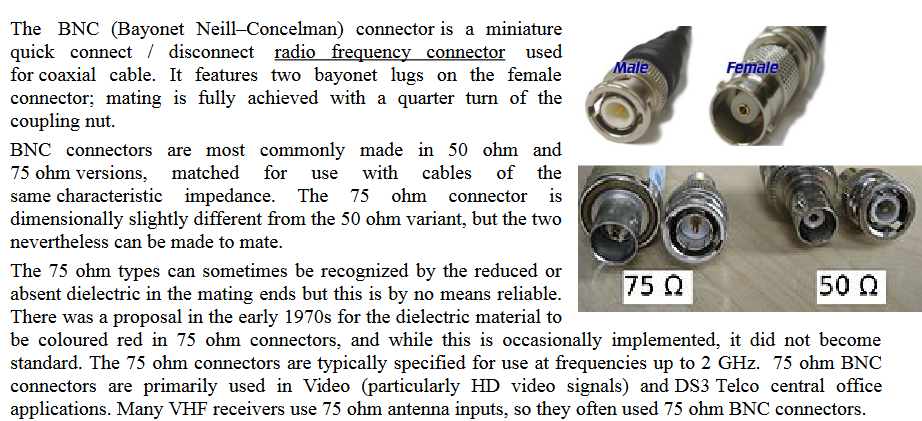
3.5mm (1/8in) / “AUX” - 3.5mm is commonly used for audio devices, like headphones. It is also used to carry Control Voltage (CV) for modular synthesizers, and for MIDI data. Some glitch boxes have a 3.5mm input for audio reactivity, or modular CV control.
3.5mm connectors have 3 physical varieties.
Mono / TS (Tip, Sleeve)
Stereo (Tip, Ring, Sleeve)
Headphone (Tip, Ring, Ring, Sleeve)
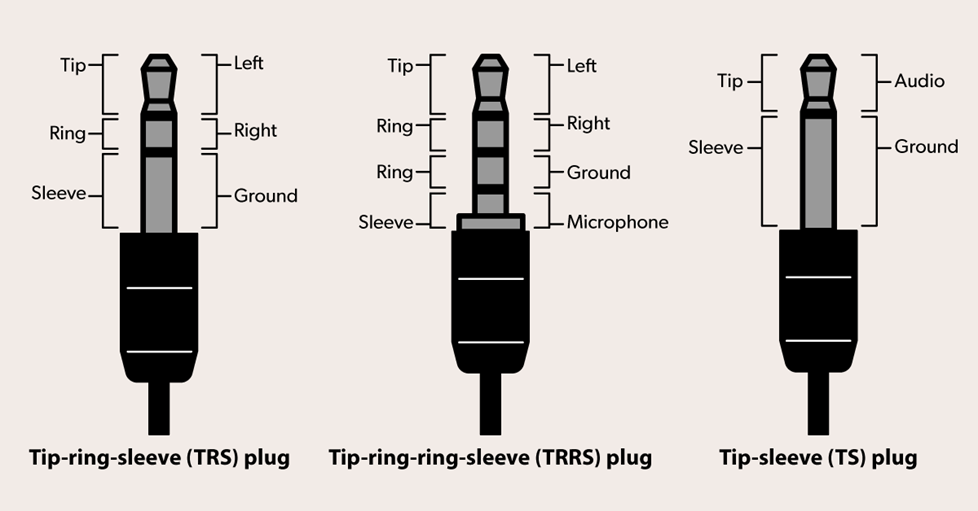
TRRS is most commonly used in stereo microphone headsets / earbuds. TRRS is also sometimes used as space-saving connectors (aka “break-out” connectors) for composite video. There are several competing standards for how they are wired. If you purchase one of these breakout cables, you need to get the right configuration. Raspberry Pi for example uses the CTIA / Apple standard. See: https://www.mycablemart.com/store/cart.php?p=6026&m=product_detail

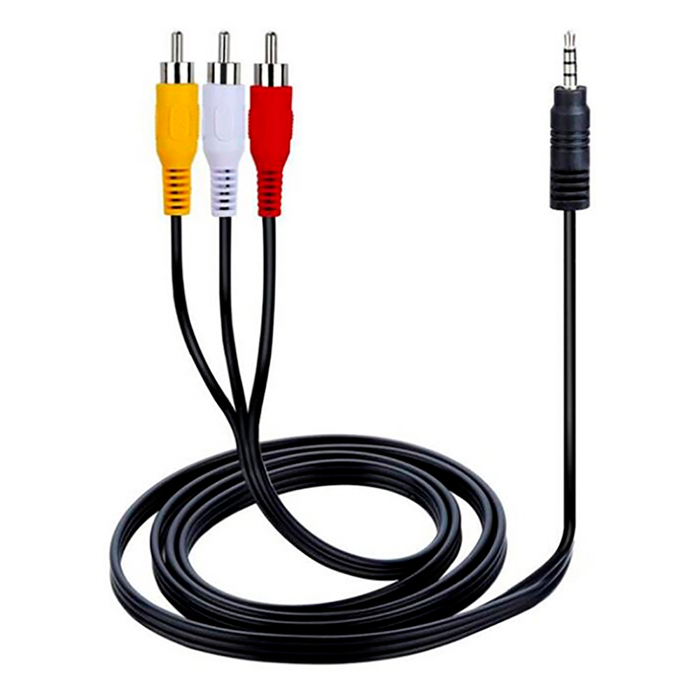
HDMI - usually comes in the larger/standard size connection, but some devices use “mini” or “micro” HDMI connections.
Mini HDMI
- Some DSLR
- Raspberry Pi Zero
Micro HDMI
- Raspberry Pi 4
- Some GoPro
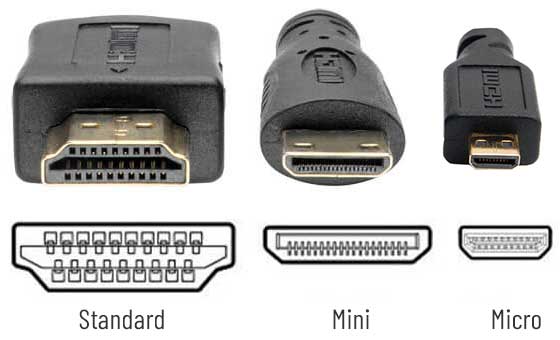
SCART
https://en.wikipedia.org/wiki/SCART
A European connector standard. Commonly carries component and composite video.
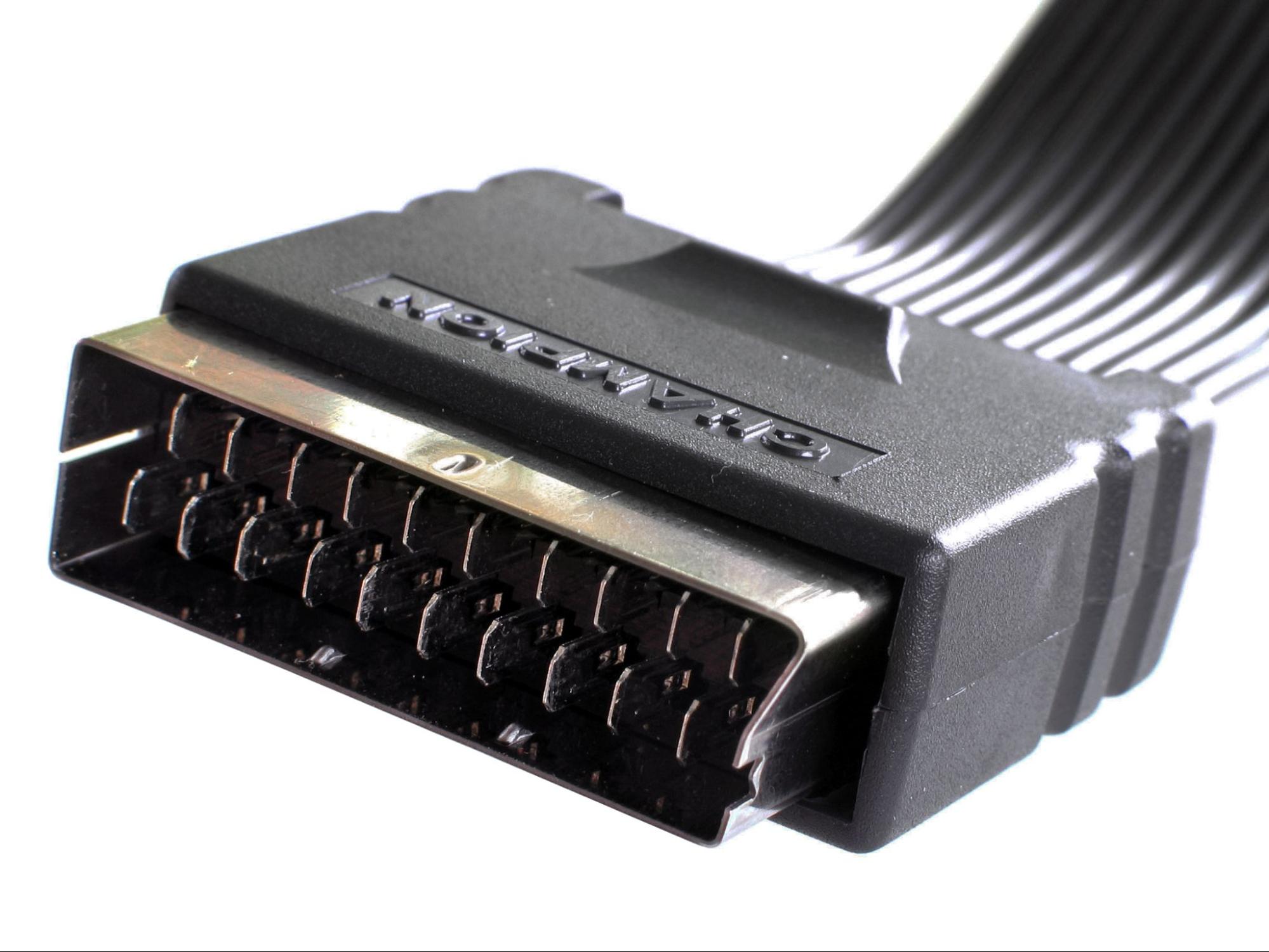
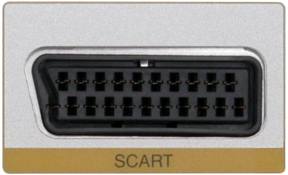
D-Terminal - An analog connector for Component video found on Japanese consumer electronics from cameras to TBC units in the late 90s to early 2000s.
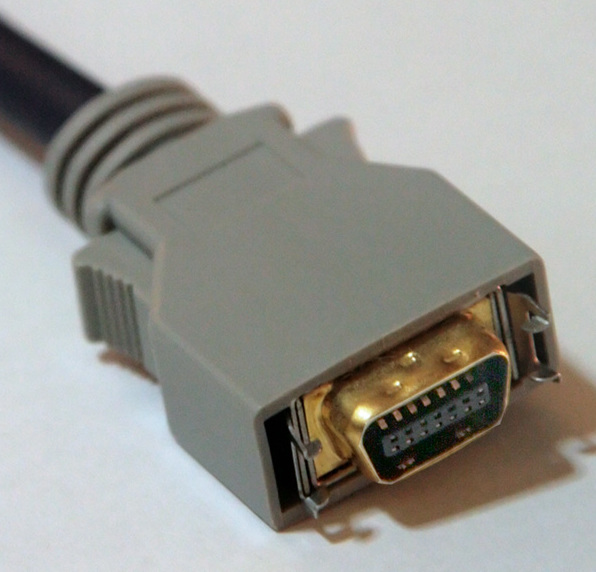
DVI Cable
The successor to VGA; DVI is a digital standard. However for backwards compatibility, the square pins may carry analog VGA signal.
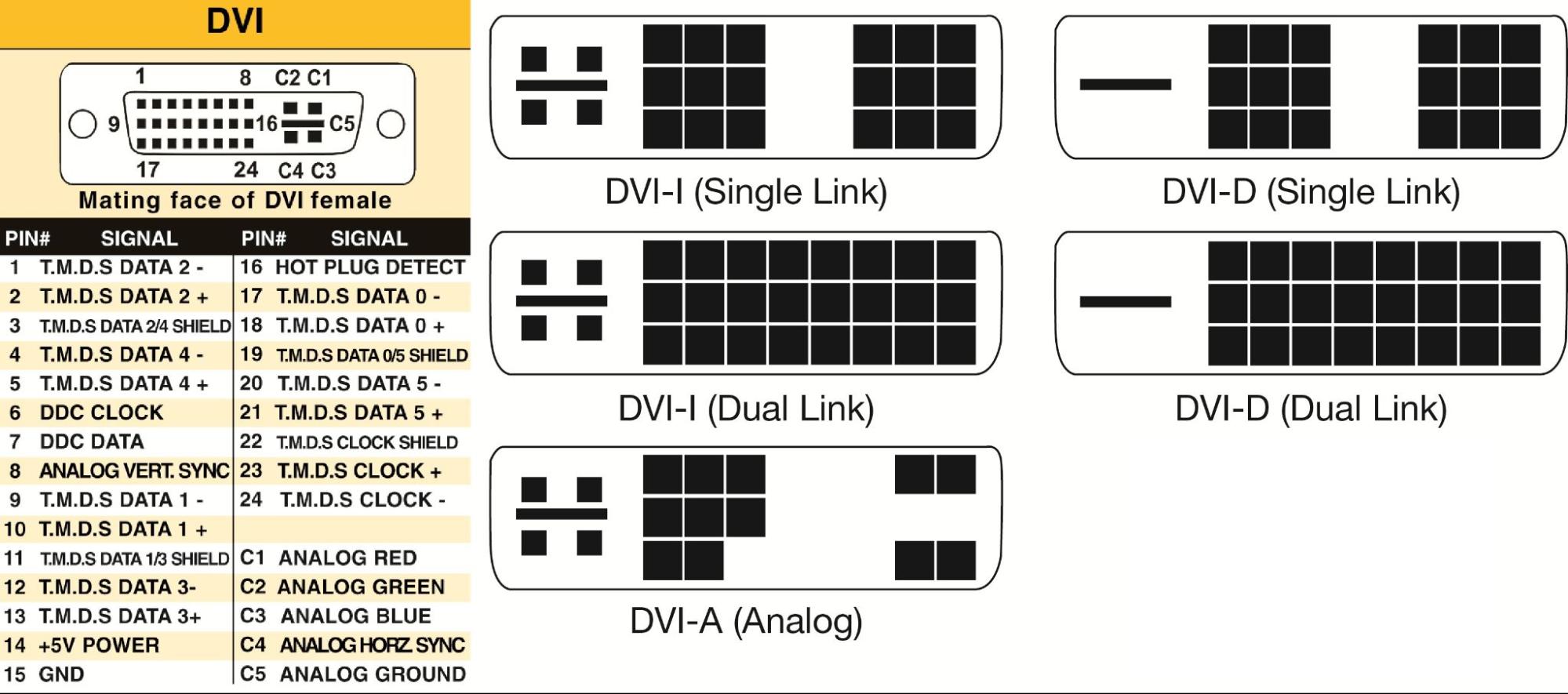
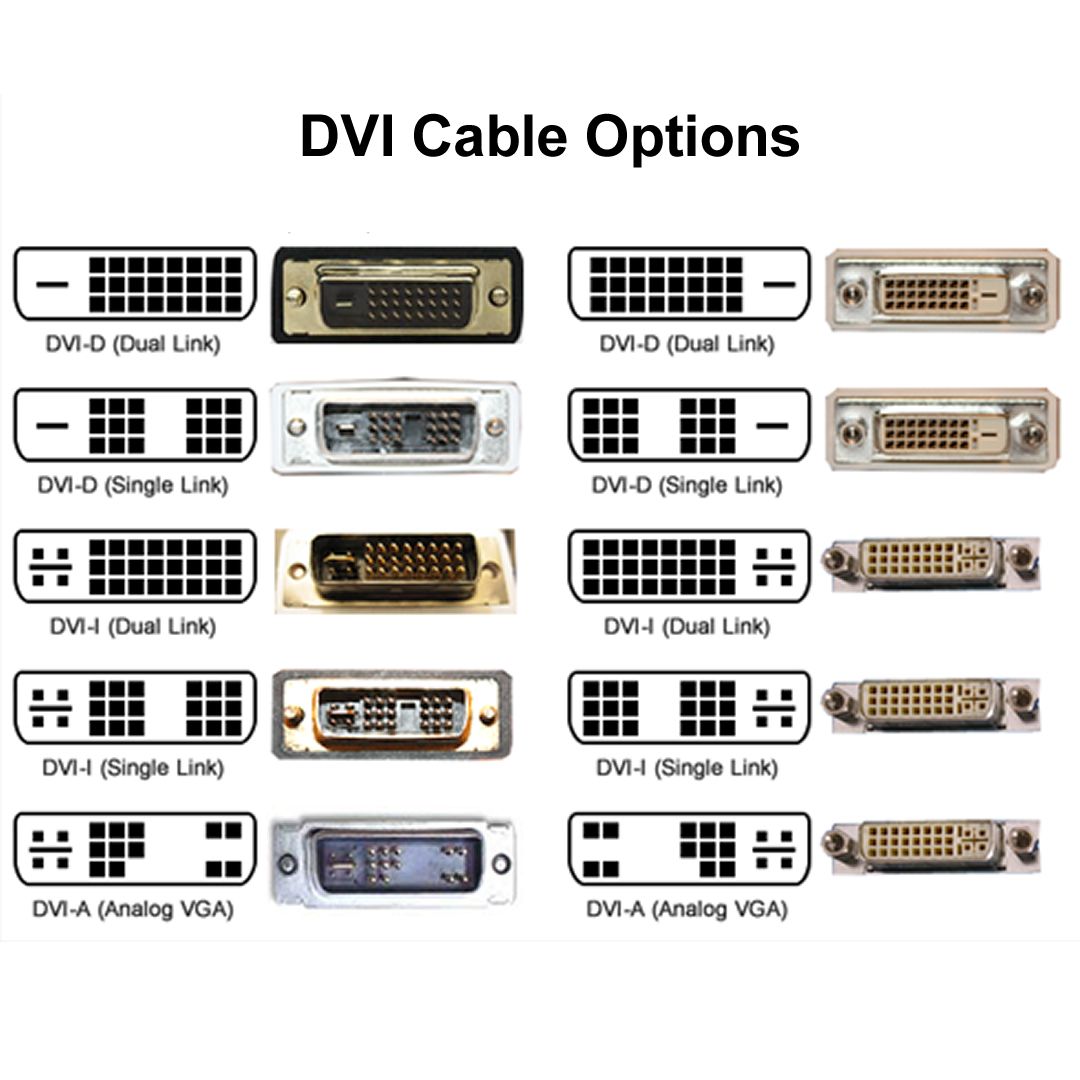
RF
“Rabbit Ear” antennas connected to TVs via the two “Blade” connectors shown on this RF Modulator box. If you are interfacing with an older TV, this may be an option.
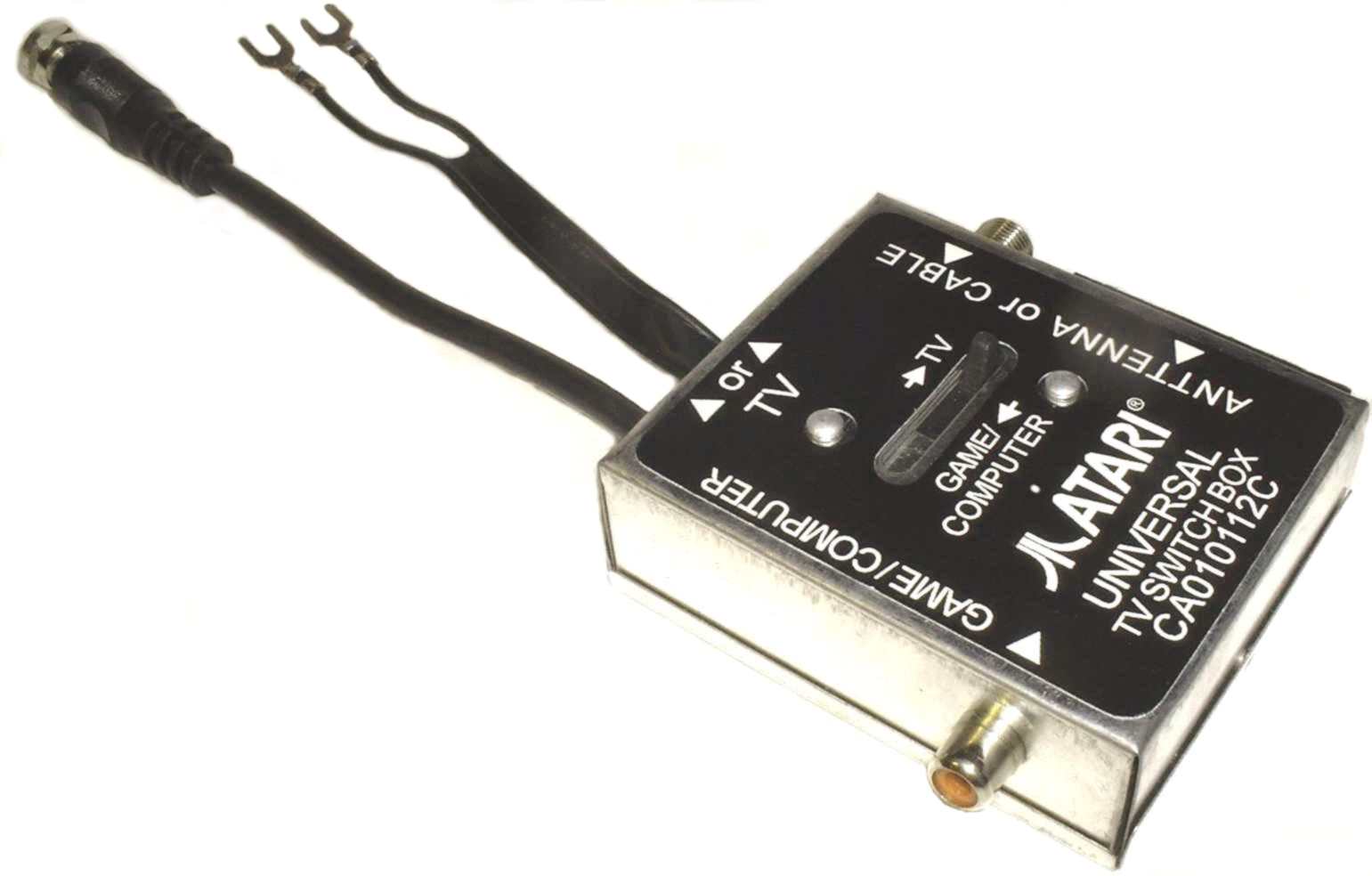
USB-C And Thunderbolt 3 and 4
USB-C is a connector that carries many different signals and power.
- DisplayPort Alternate Mode allows USB-C to be a Displayport cable, carrying Displayport 1.4 or 2.0 and resolution up to 4k or 8k.
- HDMI Alternate Mode exists, but may not be widely supported.
- Thunderbolt 3 and 4 ports are are compatible with DisplayPort and can send multiple video streams. Such as driving two 4k or 8k monitors.
- USB4 builds on Thunderbolt3 and carries DisplayPort and PCIE data.